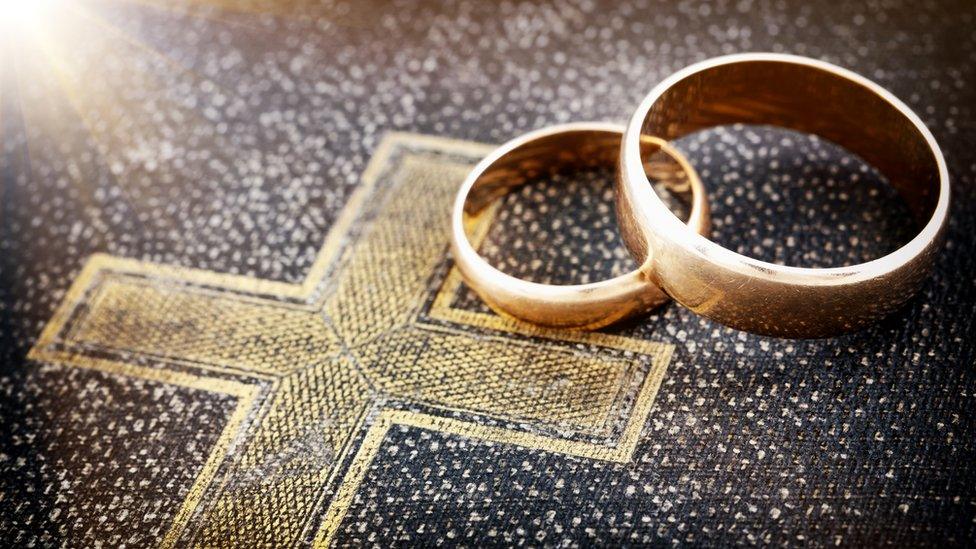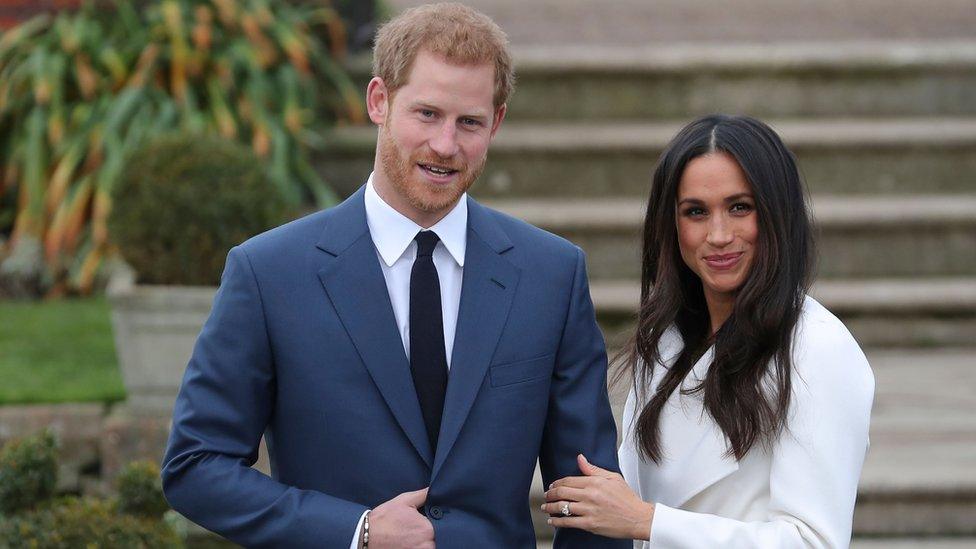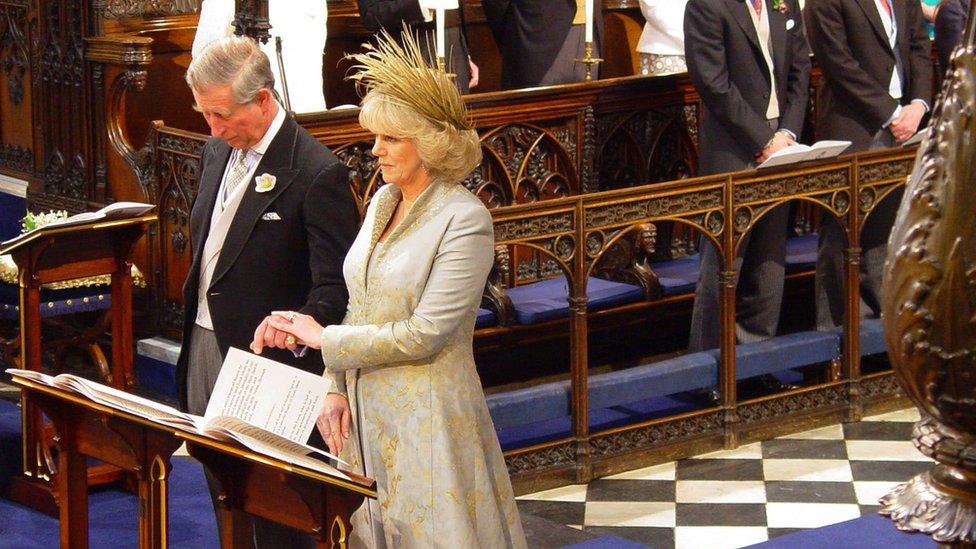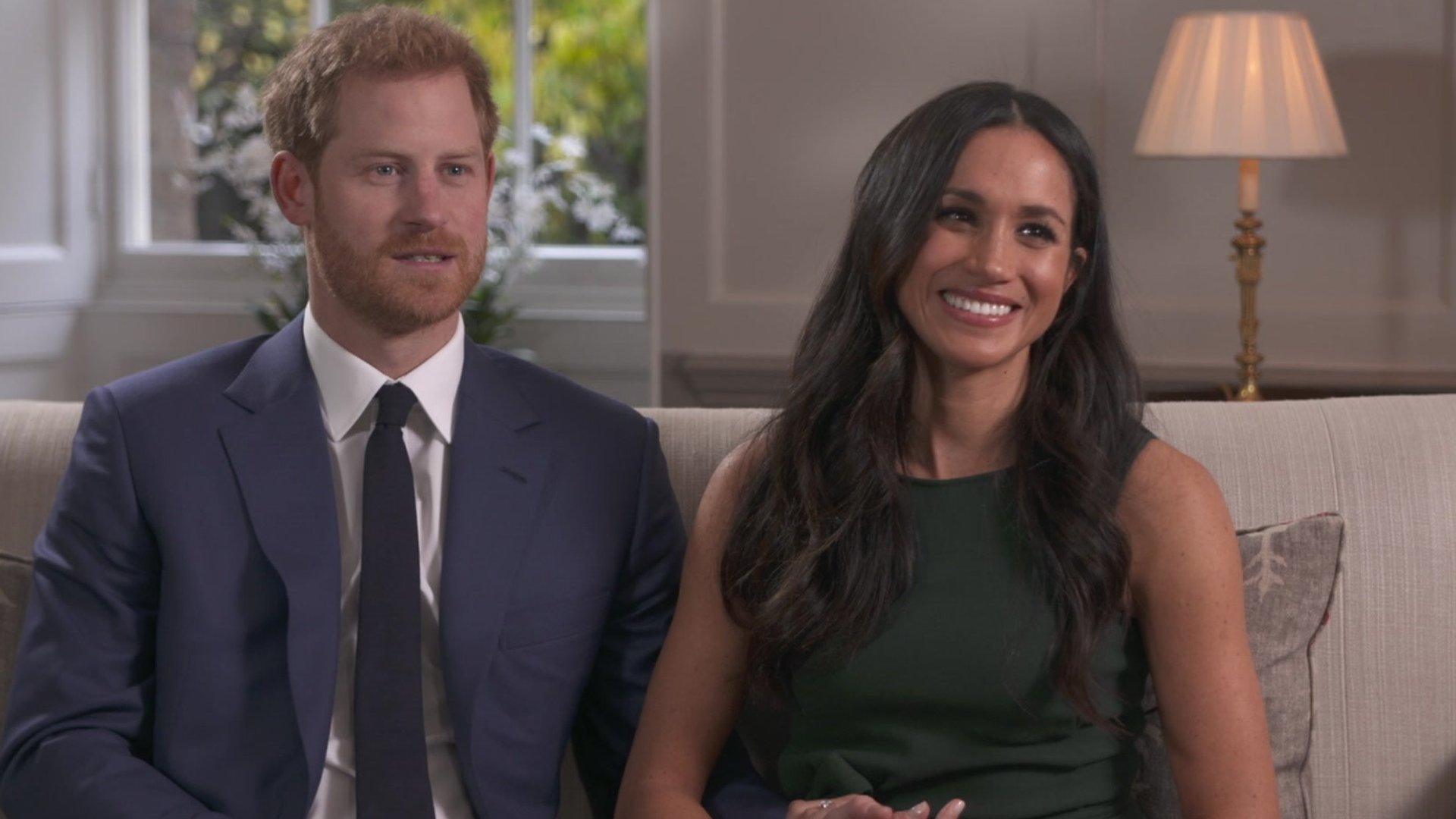Harry and Meghan: Can you remarry in church after divorce?
- Published

Prince Harry and Meghan Markle are to marry at St George's Chapel, Windsor, in May. But what effect does the fact that she is divorced have on the wedding?
The first words uttered by a priest after the moment that he or she has legally married a couple in the Church of England are: "Those whom God has joined together let no-one put asunder."
But 42% of marriages in England and Wales end in divorce, external, according to the Office for National Statistics' 2016 figures. This year it was revealed that a quarter of people who marry have done so before.
So even allowing for those who choose to remarry in civil ceremonies, the Church must inevitably be asked to marry some people who are divorced.
The Church of England did not officially permit remarriage after divorce from the 17th Century until the 21st.
The rules were almost certainly breached informally. But it was only in 2002 that the General Synod, the church's legislative body, allowed remarriage in church of divorced people whose former partners were still alive, in "exceptional circumstances".

Prince Harry and Meghan Markle will marry in May
It revoked resolutions dating back to 1938 stating that "both divorce itself and remarriage after divorce during the lifetime of a former partner always involve a departure from the true principle of marriage", and "the Church should not allow the use of [the Marriage] Service in the case of anyone who has a former partner still living".
Advice to clergy published by the church in 2002 states that defining the "exceptional circumstances" is the responsibility of the priest conducting what is called the "further marriage" - how the church terms the second marriage.
Priests who do not object are recommended to make sure that the couple understand that divorce is a breach of God's will for marriage.
'Hostile public comment or scandal'
They should ensure the prospective couple have a "mature view" of the breakdown of the previous marriage, and that there has been "sufficient healing of the personal and social wounds of marriage breakdown".
The breakdown of the previous marriage must not be "directly caused" by the new partner, and the new marriage should not "cause hostile public comment or scandal".
Clergy who object to carrying out the remarriage of divorcees have a get-out.
Section 8 (2) of the Matrimonial Causes Act 1965 states that no clergy shall be "compelled to solemnise the marriage of any person whose former marriage has been dissolved and whose former spouse is still living", or "to permit the marriage of such a person to be solemnised in the church or chapel" of which they are the minister.

Prince Charles and the Duchess of Cornwall had their wedding blessed at St George's Chapel, Windsor after a civil ceremony in 2005
They might wish instead to conduct a service of prayer and dedication after a civil marriage, as was held for the Prince of Wales and Duchess of Cornwall at the Chapel Royal in Windsor in 2005.
The Archbishop of Canterbury, Justin Welby, whose parents were divorced when he was young, has conducted the marriage service of at least one divorced person.
In the Church of Scotland, divorcees have been permitted to remarry since church law was changed in 1959.
The teaching of the church, which is Presbyterian in tradition, does not consider marriage to be a sacrament - the term used to describe a formal rite of the church.
Ministers are required to ask divorcees similar questions to those used by Anglican priests south of the border, and no minister has to conduct a marriage ceremony against his or her conscience.
Catholic canon law does not permit the marriage of a divorcee whose former spouse is still alive, although annulments can be granted to certify the original marriage as invalid from the start.
- Published27 November 2017
